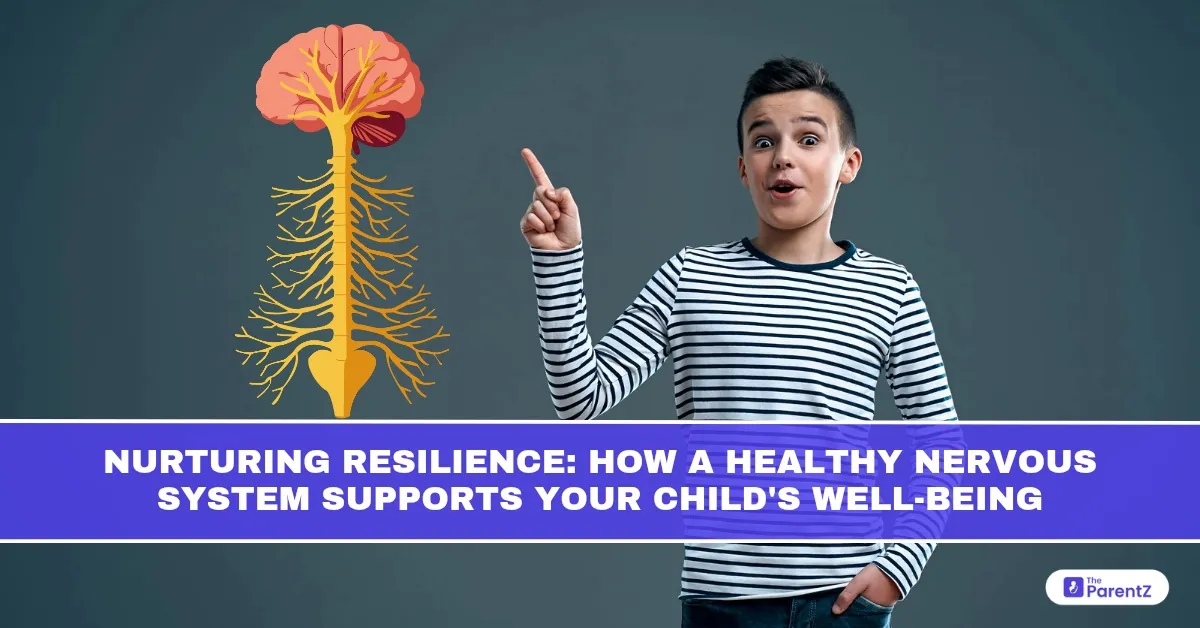Childhood is a period of rapid growth not just physically, but also emotionally, mentally, and neurologically. At the heart of all this development lies the nervous system, the intricate network of the brain, spinal cord, and nerves that controls everything from movement and coordination to mood, memory, and response to stress.
When a child’s nervous system is functioning optimally, it helps lay the foundation for resilience, the ability to cope with challenges, adapt to changes, and thrive in different environments. Understanding and supporting neurological health is a powerful way to promote your child’s overall well-being.
The Nervous System: Your Child’s Control Center
The nervous system in children is continuously evolving. It is responsible for:
- Cognitive development (thinking, learning, problem-solving)
- Emotional regulation (handling feelings, building social skills)
- Motor skills (movement, balance, coordination)
- Sensory processing (how they interpret sights, sounds, touch)
- Stress response (coping with fear, excitement, or anxiety)
Even slight disturbances in neurological function can affect how a child behaves, learns, or connects with others. This is why maintaining nervous system health is vital from infancy through adolescence.
How the Nervous System Builds Resilience
Resilience doesn’t just come from mental strength; it also depends on a child’s brain and nervous system being wired in healthy ways. Here’s how:
1. Regulated Stress Response
A well-balanced nervous system can handle everyday stressors without becoming overwhelmed. It helps children bounce back after setbacks, whether it’s a tough day at school or a disagreement with friends.
2. Stable Emotional Responses
The brain helps regulate emotions like anger, fear, or sadness. A well-developed nervous system supports emotional maturity, helping kids express feelings appropriately and recover quickly from distress.
3. Strong Attention and Learning Abilities
Cognitive resilience — the ability to stay focused, adapt to changes, and solve problems — is rooted in brain health. Children with good neurological function tend to perform better academically and socially.
4. Healthy Sleep-Wake Cycle
The nervous system regulates circadian rhythms. Consistent, restful sleep improves mood, concentration, and the body’s ability to handle emotional or physical stress.
Factors That Support a Healthy Nervous System
Several environmental and lifestyle factors can help promote neurological wellness in children:
1. Nutrition for Brain Health
A diet rich in nutrients like omega-3 fatty acids, iron, B vitamins, and antioxidants supports brain development.
- Include foods like fatty fish, nuts, seeds, eggs, leafy greens, and whole grains.
- Avoid excess sugar and processed foods, which may affect attention and mood.
2. Physical Activity
Movement stimulates nerve connections and improves coordination, mood, and mental focus.
- Activities like running, cycling, swimming, or yoga enhance motor skills and brain function.
- Even simple play helps stimulate sensory integration.
3. Adequate Sleep
Sleep is essential for memory consolidation and emotional regulation.
- Ensure children follow a consistent bedtime routine.
- Avoid screens and stimulating activities close to bedtime.
4. Emotional Support and Safe Environment
Children thrive when they feel secure and understood.
- Encourage open communication and active listening.
- Be a calming presence and validate their emotions during stressful times.
5. Balanced Screen Time
Excessive screen use can affect attention span, sleep, and social development.
- Set age-appropriate limits and encourage tech-free time outdoors or with family.
Signs That May Suggest Nervous System Imbalance
While every child is different, certain behaviors may indicate the nervous system needs more support:
- Frequent meltdowns or emotional outbursts
- Poor attention span or hyperactivity
- Sleep disturbances or nightmares
- Sensory issues (overreacting to noise, textures, or light)
- Recurrent headaches, dizziness, or fatigue
- Delays in speech, movement, or coordination
These symptoms don’t always mean there’s a neurological disorder, but they can point to areas where the nervous system might be under stress. Early intervention through lifestyle changes, therapy, or specialist support can make a big difference.
The Role of Pediatric Neurology
When a child’s symptoms persist or impact daily functioning, a pediatric neurologist can help assess:
- Developmental milestones
- Nervous system function through tests like EEG or MRI
- Behavioral or learning concerns
- Conditions like ADHD, epilepsy, or sensory processing disorders
A neurologist works with families to develop a care plan that may include therapy, medication, or supportive strategies to enhance resilience.
Empowering Your Child Through Neurological Wellness
Supporting your child’s nervous system isn’t just about preventing illness, it’s about building a foundation for emotional strength, cognitive growth, and lifelong well-being. By focusing on holistic wellness from diet and sleep to emotional security, you help your child develop the neurological resilience to face life’s challenges with confidence.
Conclusion
A healthy nervous system is central to your child’s ability to learn, connect, adapt, and grow. While bumps in the road are natural, nurturing neurological health through balanced routines, loving support, and early attention to concerns can help your child thrive not just today, but well into the future. Resilience isn’t just a trait; it’s something that can be cultivated, and it begins with the brain.





Be the first one to comment on this story.